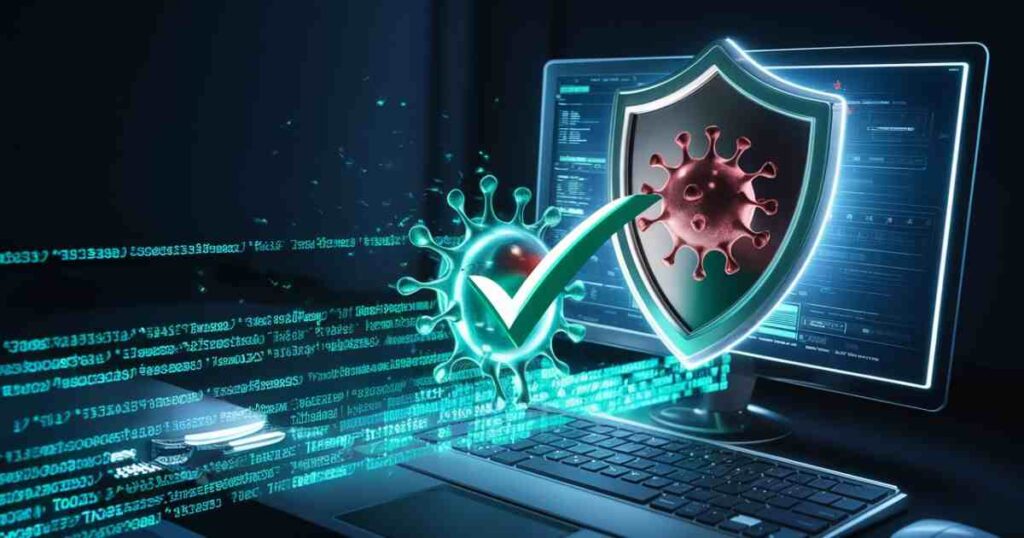Home computer is a personal device used for various tasks in your house. It can be a desktop or laptop that you use for work, entertainment, or staying connected. Home computers store important information like photos, documents, and personal data. They’re an essential part of many people’s daily lives in the digital age.
Protecting your home computer isn’t as hard as you might think. There are simple steps you can take to boost your security. Using good antivirus software, creating strong passwords, and being careful online are great starting points. Regular updates and backups are also key. With the right knowledge and habits, you can keep your computer safe from most threats.
In today’s digital age, home computer protection has become more crucial than ever. With cyber threats lurking around every corner of the internet, it’s essential to arm yourself with the knowledge and tools to keep your digital life secure. This guide will walk you through practical steps to protect your home computer, from installing robust antivirus software to educating your family on safe online practices.
Essential Antivirus Protection

When it comes to home computer protection, antivirus software is your first line of defense. Think of it as a digital shield, constantly on guard against viruses, malware, and other nasty programs that could harm your system or steal your data. But not all antivirus programs are created equal, and choosing the right one can make all the difference in keeping your computer safe.
Modern antivirus software does more than just scan for known viruses. It uses advanced techniques like behavior analysis to detect and neutralize new threats before they can cause damage. Some even offer additional features like firewalls, password managers, and secure browsers, giving you comprehensive protection in one package.
Read More: Google SEO Xiaoyan: Unlocking Your Website’s Potential
Choosing the Right Antivirus Software
Selecting the best antivirus software for your home computer can feel overwhelming with so many options available. Look for solutions that offer real-time protection, regular updates, and a user-friendly interface. Some popular choices among USA users include Norton, McAfee, and Bitdefender.
Creating Strong Passwords
Strong passwords are your personal gatekeepers in the digital world. They’re often the only thing standing between your sensitive information and potential hackers. But what makes a password strong? It’s not just about using a mix of letters, numbers, and symbols (though that helps).
Length is crucial – aim for at least 12 characters. And forget about using common words or personal info like birthdays. Instead, try creating a passphrase: a string of random words that’s easy for you to remember but hard for others to guess.
Software Updates and Patches

Keeping your software updates current is like giving your computer a regular health check-up. These updates often include crucial security patches that fix vulnerabilities hackers could exploit. It’s not just your operating system that needs updating – don’t forget about your browsers, productivity software, and any other programs you use regularly.
Enable automatic updates whenever possible to make this process easier. For Windows users, this can be done through the Windows Update settings. Mac users can find similar options in System Preferences. And don’t ignore those update prompts from your other software – they’re not just trying to annoy you, they’re trying to protect you.
Beware of Phishing and Scams
Phishing scams are like digital wolves in sheep’s clothing, trying to trick you into giving away sensitive information. These scams often come in the form of emails that look like they’re from legitimate companies, asking you to click a link or provide personal details. Be especially wary of messages claiming there’s a problem with your account or offering deals that seem too good to be true.
To protect yourself, always double-check the sender’s email address and hover over links before clicking them to see where they really lead. If you’re unsure, go directly to the company’s website by typing the URL into your browser instead of clicking any links in the email. Legitimate companies will never ask for sensitive information like passwords via email.
Backing Up Your Data
Think of data backup as your digital insurance policy. If something goes wrong – whether it’s a hardware failure, a ransomware attack, or accidental deletion – having a recent backup can save you from losing precious files and countless hours of work. There are several ways to backup your data, from external hard drives to cloud storage services like Google Drive or Dropbox.
The key to effective backup is consistency. Set up a regular backup schedule and stick to it. Many backup solutions offer automatic backups, which can take the hassle out of remembering to do it manually. And don’t forget to test your backups occasionally to make sure they’re working correctly. After all, a backup you can’t restore is no backup at all!
Choosing a Backup Solution

When it comes to choosing a backup solution, you’ve got plenty of options. Cloud backups are convenient and accessible from anywhere, but they require a good internet connection and ongoing subscription fees. Local backups to an external hard drive are faster and give you full control over your data, but you’ll need to remember to connect the drive regularly.
For the best of both worlds, consider a hybrid approach. Use an external drive for quick, daily backups of your most important files, and a cloud service for less frequent but more comprehensive backups. This way, you’re protected against both local disasters (like a house fire) and internet-related issues (like a cloud service going down).
Regular Backup Schedule
A regular backup schedule is crucial for ensuring your data stays safe. Daily backups are ideal for files you change frequently, like work documents or personal projects. Weekly backups might be sufficient for less critical data. The key is to find a rhythm that works for you and stick to it.
Automate your backups whenever possible. Most operating systems and backup solutions offer scheduling features. For example, you could set your computer to back up to an external drive every night at 2 AM, or to sync with a cloud service every hour during your workday. Just make sure your backup device is connected or your computer is on and connected to the internet at the scheduled time.
Read More: Is Boost Mobile Good?
Frequently Asked Questions
Can ad blockers protect your home computer?
Ad blockers can help keep your computer safe. They stop ads from showing up on websites. Some ads can have bad stuff in them, so blocking them can make your browsing safer.
How do password managers protect your home computer?
Password managers help by creating and remembering tough passwords for all your accounts. This means you don’t have to use the same password everywhere, which is safer.
Does turning off auto-run features protect your home computer?
Yes, turning off auto-run can help protect your computer. Auto-run makes things on USB drives start automatically when you plug them in. This can be dangerous if the USB has bad stuff on it.
How does monitoring network traffic protect your home computer?
Watching your network traffic is like having a security camera for your internet. It helps you see if anything weird is happening, like someone trying to break in.
Can educating family members protect your home computer?
Definitely! Teaching your family about computer security is super important. Even if you do everything right, one family member falling for a scam can cause problems.
Conclusion
Keeping your home computer safe isn’t hard, but it needs some effort. Use good antivirus software, make strong passwords, and be careful of scams. Don’t forget to update your programs and back up your files. Teach your family about online safety too. While no computer is totally safe, these steps make it much harder for hackers to cause trouble. Stay alert, keep learning about new threats, and ask for help when you need it. With these habits, you’ll be much safer online. Stay smart and stay safe.

